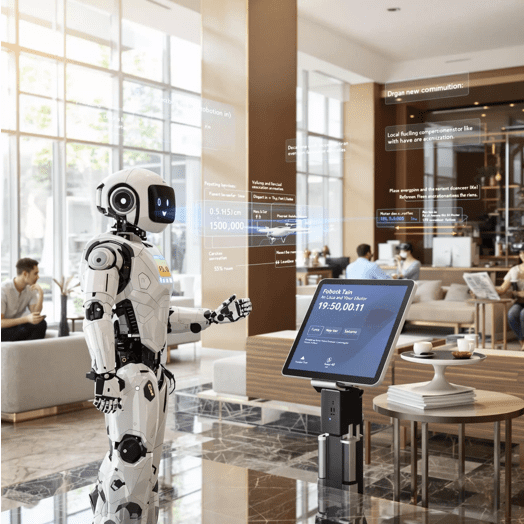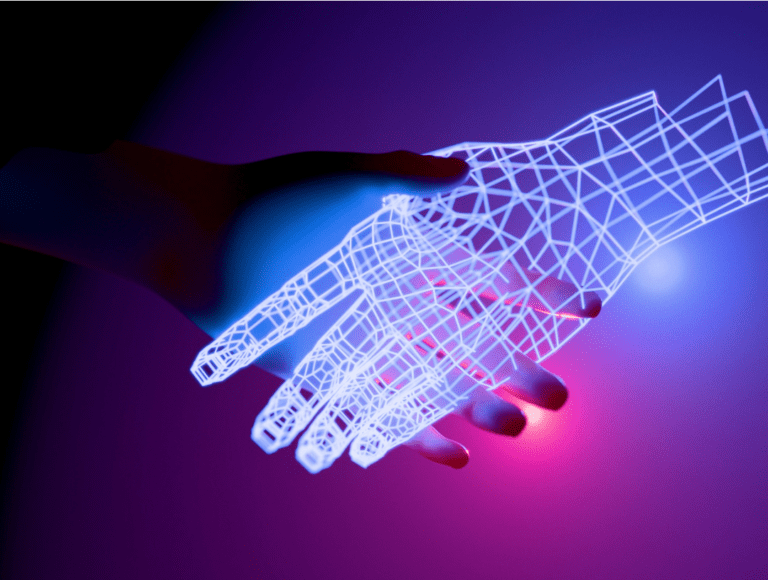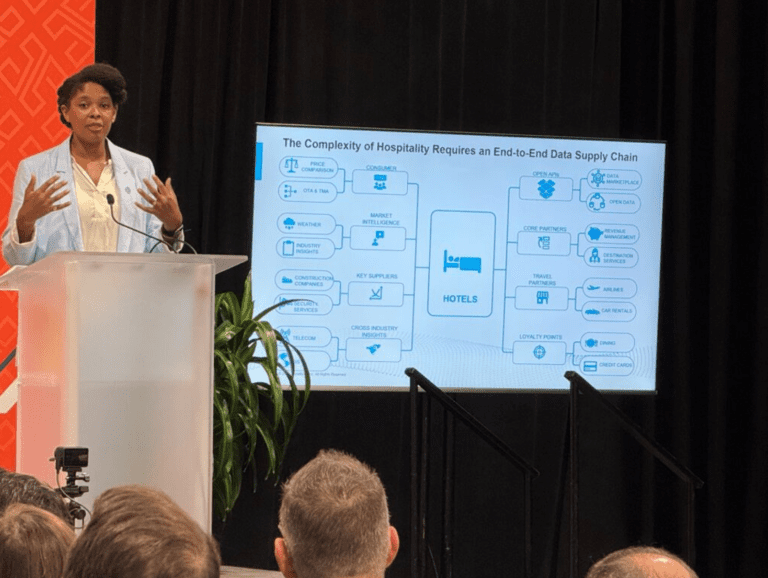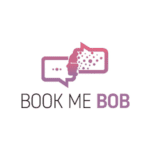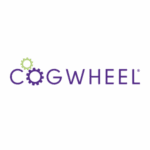![]() Every business wants their customers to be satisfied and come back again, mostly in the hotel industry. Hoteliers want to cater to their guests’ every need but sometimes, it’s difficult for them to cater to every demand and run backend operations simultaneously.
Every business wants their customers to be satisfied and come back again, mostly in the hotel industry. Hoteliers want to cater to their guests’ every need but sometimes, it’s difficult for them to cater to every demand and run backend operations simultaneously.
That is why they want most tasks automated with the help of an emerging technology called AI (Artificial intelligence).
As most of the other industries started adopting AI in their most mundane routine tasks and some hotels followed the trend,.
Considering this the future of hospitality seems to be more AI-oriented, as they want to use AI for their guests’ satisfaction, reduce workload, and grow their revenue.
Let’s share some of the most valuable details on AI in hotel task management. So, make sure you don’t miss out on any details.
What does AI mean for hotels?
For hotels, AI is just something that automates hotel day-to-day tasks, streamlines their workforce, and educates or trains their staff members on providing better guest experience.
From online booking to hotel internal stuff AI is progressively being integrated into hotel management for a variety of hotel management operations.
Most tech companies started working on AI software development that helps businesses manage routine duties, allowing hotel workers to focus on more complicated jobs that contribute to an increase in guest satisfaction and total income.
How is AI software transforming the hospitality industry?
As per the research, AI is transforming the hotel industry by boosting its efficiency. It also personalizes the guest experience, evaluates preferences, identifies trends, and reduces costs on operational tasks.
AI frees up human interaction in most areas, allowing them to focus on more strategic and complex tasks. It can also handle guests’ queries anytime without watching the clock and answering them with appropriate solutions. It also analyzes guests’ past booking behavior and recommends delightful offers and discounts that suit guests’ needs and tastes.
By leveraging the power of AI businesses can take advantage of them by automating their most administrative tasks and improving their service quality, businesses can also make data-driven decisions, optimize pricing strategies, and allocate resources that boost profitability.
Most hotels are concerned about energy consumption, which can be addressed using AI-driven smart sensors that can adjust room temperature and lighting as per the need.
For example, if guests fail to turn off their room AC before leaving, the smart sensors will automatically turn off the AC based on the movement of guests.
This disruptive power of Artificial intelligence boosts the hospitality industry from all angles, efficiently and simultaneously improving the overall hotel management process and productivity.
How is AI used in hotels?
Every hotelier wants to increase its occupancy and more satisfied customers, thereby building trust and loyalty. However, the adoption of technology stands in the way of the hotelier’s dreams.
Nowadays every guest wants smooth hoteliers to cater to their needs and requirements. From check-in to check-out, they want everything to their liking.
That is why Hotels increasingly using AI in their hotel management tasks.
But AI mostly lies in the backend of hotel operations, and it is time to take this further by addressing some use cases of AI in hotels.
1. 24/7 customer service
Catering customer service includes AI-powered chatbots and social media messaging, which are extensively used in the hospitality industry to handle guests’ queries 24 hours a day without breaking a sweat.
They are cost-effective and reduce staff workload, ensuring that guests get total comfort.
2. Room voice assistants
Installing AI-powered voice assistants that improve visitors’ experiences by allowing them to control hotel facilities such as lighting, temperature, and entertainment with a voice command. They frequently use AI-powered speakers like Alexa, which allow for customization based on the visitors’ preferences. This increases attraction and provides a more personalized experience.
3. Revenue management
The survey conducted by Hotel News Now stated that the most effective area in AI and ML, with more than 60% guest satisfaction is hotel revenue management.
That is why hotel uses AI-driven RMS systems that set smart prices, automate bookings, and automate market segmentation, and competitor analysis. This allows us to make data-driven decisions and remain in the competitive market.
4. Data analysis
Hoteliers use AI to analyze large amounts of guests’ data like past booking history, additional purchases, online reviews, special demands, or preferences. This allows hoteliers to get to know about guests’ spending patterns and tastes based on each guest’s preferences and feedback. It also analyzes market trends and demand forecasting to help hoteliers set strategies that engage guests and fill the overall occupancy.
5. Performance and feedback management
By using AI-powered tools, hoteliers can track their hotel performance and get valuable insights on service quality, customer feedback, and operational efficiency that identify loopholes that need to be focused.
By analyzing feedback, hotels can enhance their hotel operations and train staff to actively handle guests’ complex queries. This leads to reduced errors and more satisfied customers.
10 AI tools every hotelier should know
To upgrade your hotel management, here are some awesome AI tools that you should know: –
- Botshot’s Predicto PMS – AI-powered Property management system that manages your all hotel operations smoothly.
- Voiceplug – AI-based voice assistant that receives orders from customers through speech and commands.
- Allora – Advanced AI-based learner that analyzes thousands of guests’ data to provide better insights to help hoteliers create better guest experiences.
- Botshot’s Freddie – AI-powered chatbot that manages customer queries 24/7 and suggests real-time recommendations with multilingual capabilities.
- JoshAI – AI-powered voice technology transforms your home into a smart home, allowing you to control the lighting, temperature, and entertainment with a voice command.
- Mobotix – AI-powered parking software that detects free and occupied parking spaces while also recommending free and cost-effective parking options.
- Viqal – AI-powered guest engagement tool, that automates guest inquiries by utilizing conversational AI through WhatsApp.
- Winnow Vision – Advanced AI-based technology that cuts down the wastage of food and helps hotels run more profitable businesses.
- Meteum – AI-powered technology that predicts weather forecasting based on data from ground and space.
- Mara – The AI-powered review reply generator allows hotels and businesses to respond to reviews in seconds.
These are the top AI tools that are outstanding in their way and use, most businesses can use these tools to upgrade their business management or gain valuable insights. These tools can surely increase your engagement and your staff’s productivity.
Conclusion
Lastly, AI won’t remove human interaction completely but provide enough support to streamline the workforce and add value to the customers.
With the power of AI, hoteliers and other businesses can make their businesses stand out from the crowd.



